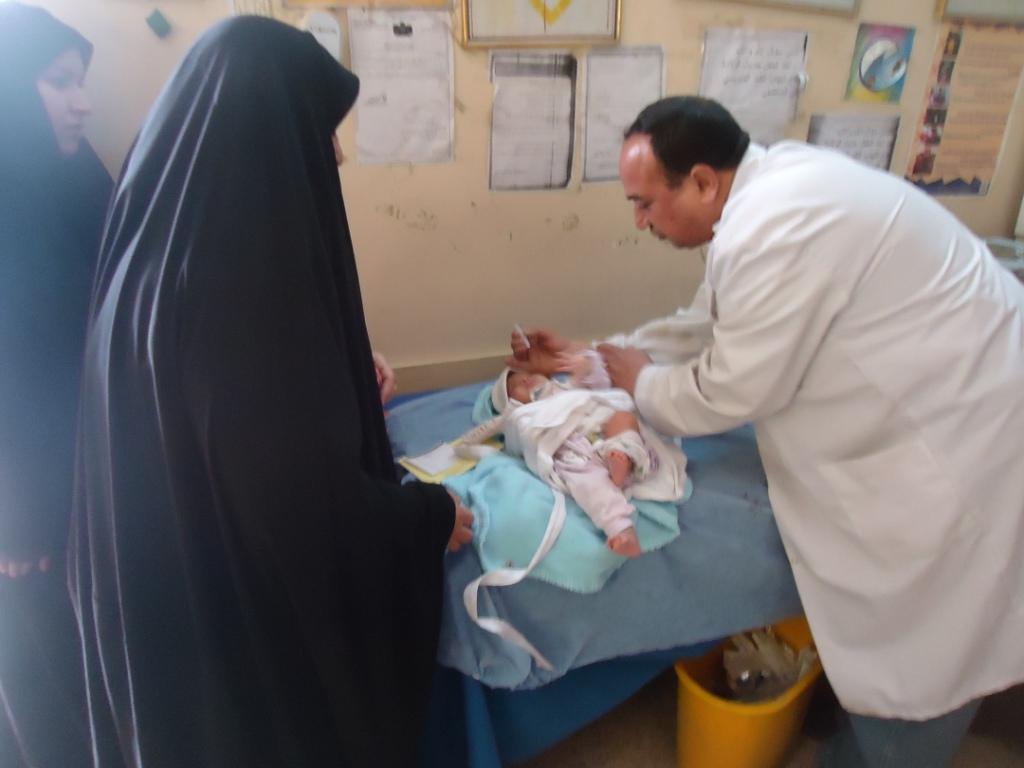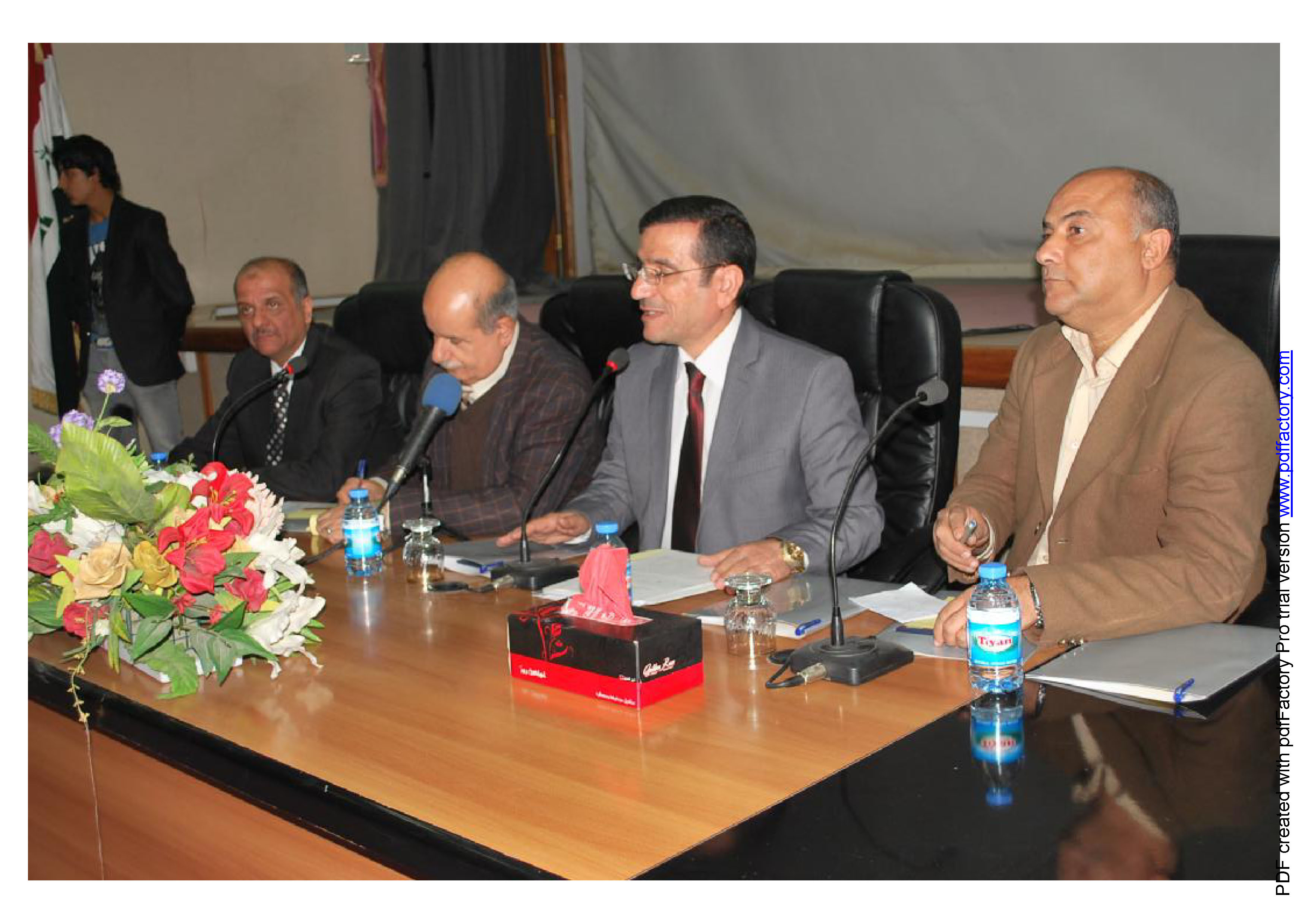Consolidated efforts to protect and safeguard children in Iraq
 Vaccinating a child at the Primary Health Care Center in Babylon. (Ministry of Health, Jan 2012)
Vaccinating a child at the Primary Health Care Center in Babylon. (Ministry of Health, Jan 2012)
Baghdad, Iraq, 17 January 2012 – The Ministry of Health and the World Health Organization (WHO), in collaboration with UNICEF, announced on 17 January at a press conference at the Ministry of Health premises the availability of rota and Haemophilus influenza type B vaccines for all at all health care centres, basic health units and state-run hospitals, free of charge. The press conference was attended by high-level official delegates representing health-related ministries, the media and UN agencies.
H.E. Dr Majeed Hamad Amin, the Minister of Health of Iraq said, “These vaccines will protect thousands of infants against the most dangerous childhood infections, including the major causes of diarrhoea and the major causes of pneumonia, and meningitis, that is known to lead to permanent neurological disabilities”. H.E. said that in 2011, 46% of severe diarrhoea and pneumonia cases were reported as a result of rotavirus and invasive diseases caused by Haemophilus influenza, the second cause of death among infants in Iraq. These vaccines will contribute to the reduction of morbidity and mortality of children in the country.”
During the press conference, Dr Syed Jaffar Hussain, the WHO Representative in Iraq, stressed that immunization is one of the most important, successful and cost-effective ways to save lives and to ensure that children grow up to be strong and healthy in their communities, to improve health, ensure long-term prosperity and to invest in health to save lives. He added that “Millions of cases of disease and thousands of deaths in children can be prevented each year through integrating these two very safe and effective vaccines in the national vaccination package”. He added that this achievement had come after five long years of laying the groundwork. The Ministry of Health of Iraq, with WHO, had updated all the vaccine schedules, trained over 7570 Expanded Programme on Immunization health workers on vaccine stock management, storage, method of administration and safe disposal to all children. They had also ensured the availability of vaccines at primary health care centres and had managed stocks.
Mr Osama Makkawi, UNICEF’s Deputy Representative in Iraq said, “The introduction of the new vaccines is an important step to ensure the best start of life for the children of Iraq. Our overall goal remains to support the government of Iraq in providing quality health services to all children across the country and especially the most deprived.” As part of this commitment UNICEF has worked with WHO to ensure that the Ministry of Health of Iraq has the cold chain capacity to accommodate the additional need at central and peripheral levels. This included assessments of the existing capacity and the procurement of additional cold chain supplies. With the launch of the new vaccines UNICEF will embark with the Ministry of Health on an extensive community mobilization campaign to ensure that parents are aware of the importance of the new vaccines and the new vaccination schedule.
 Ministry of Health during a press conference conducted today at 11:00 am. (Ministry of Health Baghdad, 2012)
Ministry of Health during a press conference conducted today at 11:00 am. (Ministry of Health Baghdad, 2012)
At the end of the press conference, H.E the Minister reinforced the Ministry’s commitment to introducing new vaccines, such as conjugated pneumococcal vaccine, within a short time to the national routine schedule, to expand storage capacity and achieve Millennium Development Goal 4, which aims to reduce child deaths by two-thirds by 2015. He also stressed the value of partnerships and called for greater collaboration to protect the children of Iraq from preventable deadly diseases.
PR available in English | Arabic
For more information contact:





